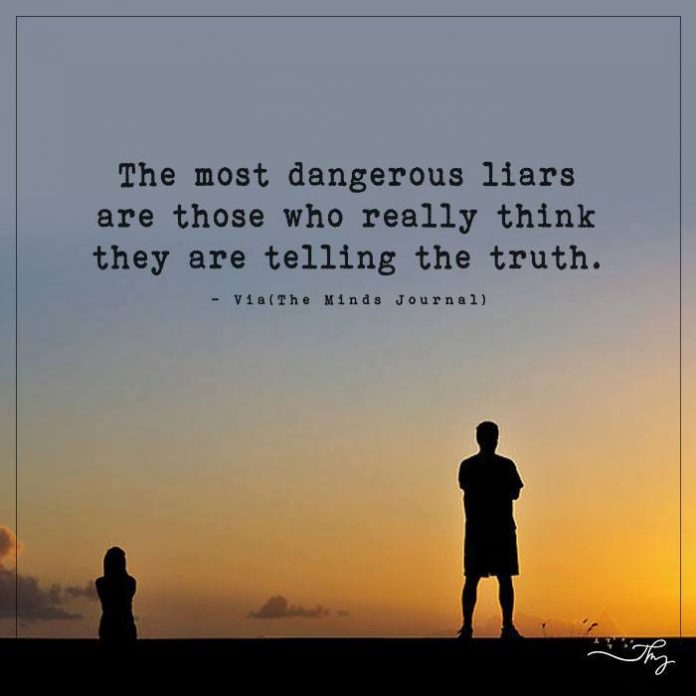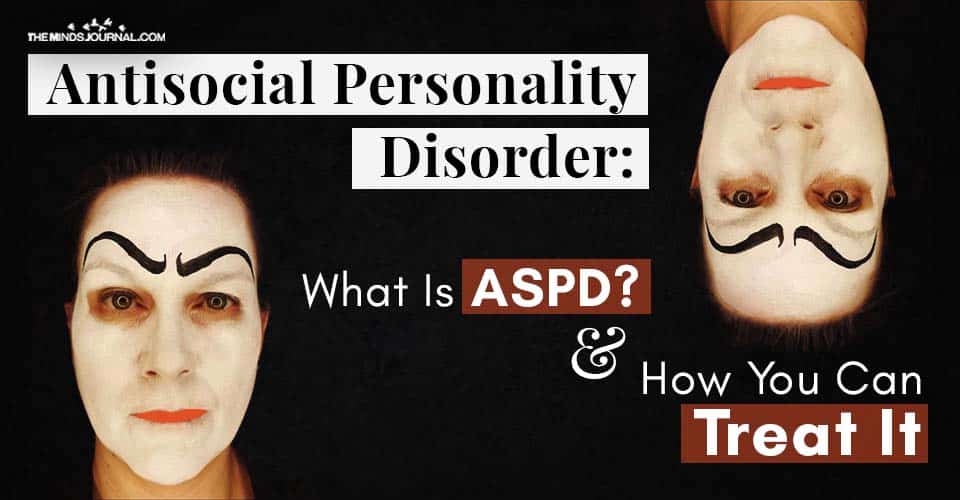Antisocial personality disorder or ASPD is a particular type of complicated personality disorder which may lead to reckless, impulsive and even criminal behavior.
What is antisocial personality disorder?
Also known as sociopathy, ASPD is a chronic mental condition characterized by disregard for what is morally and ethically right or wrong. A sociopath may have no regard for the feelings and rights of other people. They tend to violate, exploit and manipulate others without any regret. A 2019 study defines ASPD as “a deeply ingrained and rigid dysfunctional thought process that focuses on social irresponsibility with exploitive, delinquent, and criminal behavior with no remorse.”
This mental condition is also known as psychopathic personality and dyssocial personality. People with this disorder are often unable to build long term and stable relationships and incapable of maintaining consistent employment. According to the American Psychological Association (APA), “manifestations include repeated violations of the law, exploitation of others, deceitfulness, impulsivity, aggressiveness, reckless disregard for the safety of self and others, and irresponsibility, accompanied by lack of guilt, remorse, and empathy.”
Read also: 20 Characteristics of a Con Man Sociopath
Understanding ASPD
According to a study published in Alcohol Research and Health, around 1% of women and 3% men tend to suffer from antisocial personality disorder. This mental disorder generally develops during “childhood or early adolescence and continues into adulthood,” according to Healthline. One 2015 study by Donald W Black, MD found that “ASPD begins early in life, usually by age 8 years. Diagnosed as conduct disorder in childhood, the diagnosis converts to ASPD at age 18 if antisocial behaviours have persisted.”
Individuals with this disorder are prone to violating the law and engaging in criminal activities. They also tend to be violent, impulsive, suffer from alcohol and drug addiction and be compulsive liars as well. As a result of their reckless behavior, they put others at risk and have difficulties fulfilling responsibilities. They can also have suicidal tendencies.

However, sociopaths can be charming on the surface, even though they are aggressive and irritable deep down. According to WebMD, people with ASPD “can be witty, charming, and fun to be around – but they also lie and exploit others. ASPD makes people uncaring. Someone with the disorder may act rashly, destructively, and unsafely without feeling guilty when their actions hurt other people.” As they are highly manipulative, it can be often difficult for others to know if they are telling the truth or lying.
Read also: Sociopathy 101: Understanding the Mind & Psyche Of A Sociopath
Causes of antisocial personality disorder
Although the exact reasons for this disorder are still unknown, both genetic and environmental factors are believed to play a crucial role. According to Psychology Today, genetic (inherited) or biological factors can lead to this mental condition as “the incidence of antisocial behavior is higher in people with a biological parent who displays antisocial characteristics.” Environmental factors like a chaotic family, lack of support, lack of positive reinforcement can also influence the development of ASPD. Moreover, if you have a role model or idol who displays sociopathic tendencies, then it is likely that you may also become a sociopath.
Any individual, both male and female, can develop antisocial personality disorder if they:
- Experienced abuse and trauma during their childhood
- Had parents with ASPD
- Were raised by parents suffering from alcohol and drug problems
- Were raised by parents who were violent and engaged in criminal activities
Apart from these, ASPD can also develop due to our brain anatomy as well. According to Harvard Health Publishing from Harvard Medical School, “The frontal lobe, the area of the brain that governs judgment and planning, also appears to be different in people with antisocial personality disorder. Some researchers have found changes in the volume of brain structures that mediate violent behavior.” Although neurobiologists can’t be certain that brain function can actually cause ASPD, it does lead to problems in managing impulses and aggressive behavior.
Read also: 15 Reasons Narcissists and Sociopaths Lie
Symptoms of ASPD
If you know what to look for, antisocial personality disorder can be often identified in certain individuals. Medline Plus states that “setting fires and animal cruelty during childhood are often seen in the development of antisocial personality.” Moreover, a sociopath “will have a history of conduct disorder during childhood, such as truancy (not going to school), delinquency (for example, committing crimes or substance misuse), and other disruptive and aggressive behaviours,” according to NHS UK.
Here are some of the common symptoms of ASPD in adults:
- Being frequently angry
- Manipulating others for personal gain
- Behaving rashly and irresponsibly
- Frequently lying and exploiting others
- Being arrogant, aggressive and violent
- Being charming for personal benefit
- Stealing and conning
- Assaulting and fighting with people
- Failing to meet social, relationship and occupational duties
- Being extremely opinionated and cynical
- Lacking respect for others
- Impulsiveness
- Lacking empathy and compassion
- Failing to plan or consider negative consequences
- Hostility and unnecessary risk-taking behavior
- Constantly shifting blame on others
- Being in abusive relationships
- Breaking the law
- Not feeling guilt or remorse
- Not caring about safety of others
- Substance abuse
Read also: How To Spot A Sociopath
Treatment for antisocial personality disorder
Antisocial personality disorder is one of the hardest personality disorders to treat. “Individuals rarely seek treatment on their own and may initiate therapy only when mandated to do so by a court,” explains Psychology Today. Moreover, sufferers often think that they do not need treatment.
A combination of medication and psychotherapy may be utilized by doctors for treatment. However, the efficacy of the available treatment options in coping with the symptoms are hard to measure.
Psychotherapy
A psychologist may suggest behavioral therapy or psychotherapy in individual or group settings. They may also recommend various forms of psychotherapy like cognitive behavioral therapy and psychodynamic therapy. Cognitive behavioral therapy can help a sociopath to identify their negative thought patterns and focus more on positive thinking. Psychodynamic therapy can help to boost their awareness towards their thoughts and behaviors, enabling them to improve.
Read also: What Is CBT And How Does It Work?
Medication
Specific psychiatric medications and antipsychotics can help to treat impulsiveness and aggression. According to Psychology Today, “the antipsychotic medication clozapine has shown promising results in improving symptoms among men with antisocial personality disorder.”
“Carbamazepine and lithium may help control symptoms such as aggression and impulsive behaviour, and a class of antidepressant called selective serotonin reuptake inhibitors (SSRIs) may improve anger and general personality disorder symptoms,” adds NHS.
Depending on your condition, your doctor may recommend:
- Anti-anxiety medications
- Antidepressants
- Antipsychotic medications
- Mood stabilizers
However, no medications have been approved specifically for treating ASPD by the FDA.
Seek help
If you know someone who is suffering from antisocial personality disorder, then make sure to ask them to seek help. “People with antisocial personality disorder generally do not acknowledge that they have a problem that requires treatment,” states Harvard Health. When you identify a pattern of sociopathic behavior in someone close to you, then it is imperative that you encourage them to seek treatment.
Healthline explains “It’s hard to watch someone you care about exhibit destructive behaviors. It’s especially hard when those behaviors may directly affect you.” Although you cannot force an adult with ASPD to seek treatment, ensuring your own safety and theirs as well is the best thing you can do.
Read also: 7 Signs That You’re Dating A Sociopath










Leave a Reply